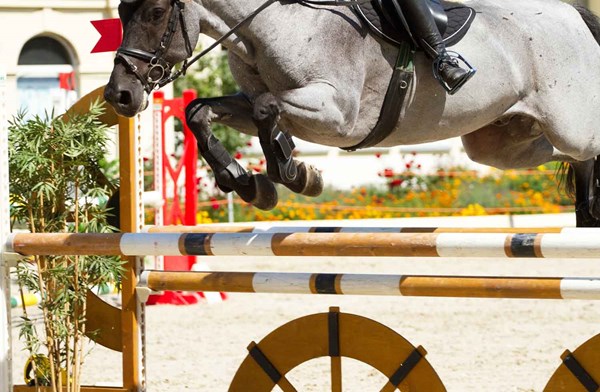 Credit: Thinkstock
Credit: ThinkstockOnce a horse has received its primary series of the initial 2-3 injections of a vaccine, follow-up boosters are given once or twice a year. Part of getting the most out of your horse’s vaccinations depends on booster timing. Some diseases are prevalent year round while others are a risk only at certain times of year.
Mosquitoes serve as vectors for Eastern (EEE) and Western (WEE) forms of equine encephalomyelitis as well as West Nile virus (WNV). The best efficacy of these vaccines lasts for 5-6 months, although many products are labeled as protective for a year. To provide your horse with maximum protection, it is ideal to immunize against EEE, WEE and WNV 2-4 weeks prior to the onset of mosquito season. Timing of mosquito hatching varies depending on geographic locale, so discuss with your veterinarian when the best time is to schedule an appointment for your horse’s spring vaccines. In warm climates without a winter freeze, boosting twice a year against these mosquito-borne viruses might be necessary, especially during periods of viral outbreaks.
The organisms that create tetanus–Clostridium tetani–are present all the time in a horse’s environment. Any wound a horse experiences has the potential for contamination by Clostridial bacteria by virtue of soil debris in contact with the wound. Vaccination against tetanus is usually included at the time of annual spring immunizations. If a horse incurs a wound 8-9 months following the annual immunization, it might be advisable to boost tetanus at that time rather than waiting the full year.
Respiratory virus vaccines against equine influenza and equine herpesvirus (rhinopneumonitis) are typically given twice a year as protective antibodies against these viruses begin to wane after 5-6 months in most cases. Horses that travel or compete are the ones most at risk; however, these individual can bring home a virus to resident horses despite seeming healthy. Old, young or immune-compromised individuals that haven’t even left the farm could be at risk when the campaigner returns home. To confer the best herd immunity, all on the farm should be immunized on a similar schedule.
Equine influenza virus is now required if you are attending a USEF-sanctioned event. Talk to your veterinarian about updated guidelines that require horses to have been vaccinated no longer than six months prior to the event.
Rabies vaccine is given once annually at either the spring or fall vaccine visit. Timing to give specific risk-based vaccines is best discussed with your veterinarian relative to the unique circumstances of your location.
There are other vaccines available for specific diseases that might be more important because of time of year or geographic location. Talk to your veterinarian about which vaccines your horse needs based on his exposure potential and timing of the vaccines to provide the most protection.


